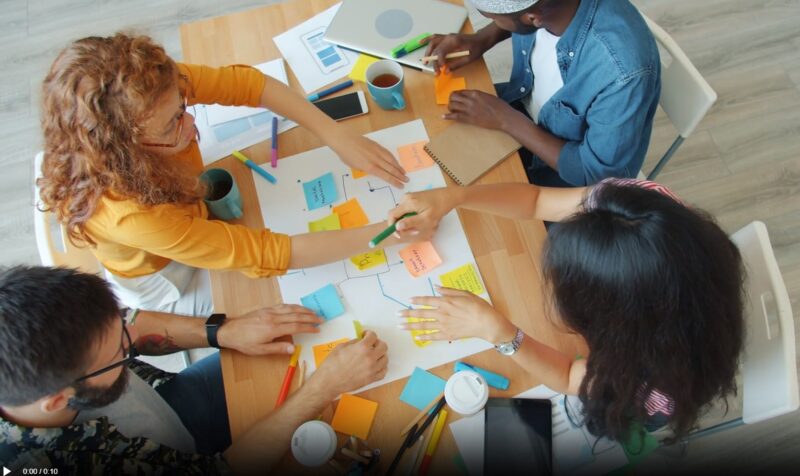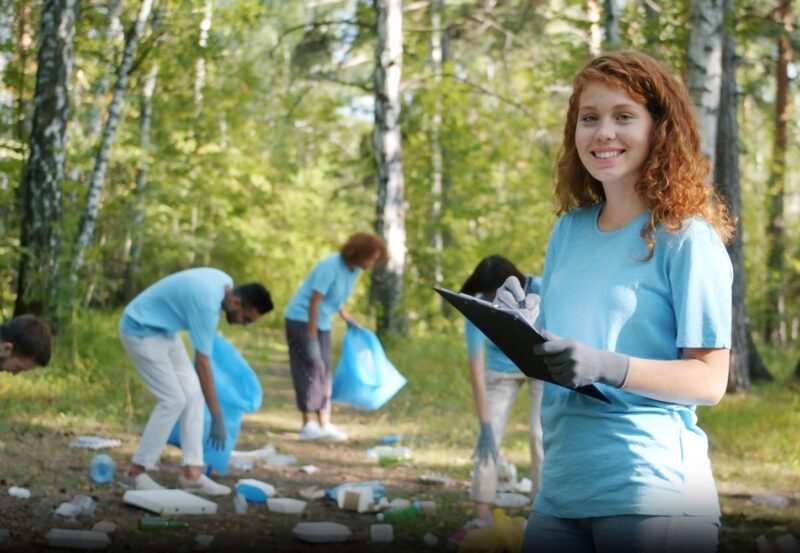I remember the first time I volunteered at a local animal shelter. I thought I was just going to help out and maybe cuddle with some cute animals. Little did I know, that experience would teach me so much more than just the day-to-day operations of a shelter.
From leadership to communication, the skills I picked up were numerous and invaluable. If you’ve ever considered volunteering or are curious about the benefits beyond the obvious, I’ll introduce you to 12 incredible skills you can learn throughout this experience.
1. Leadership

Leadership isn’t just about holding a title. It’s about inspiring others, making decisions, and guiding a team towards a common goal. Volunteering often places individuals in situations where these skills are honed.
Decision Making
Making decisions can be daunting, especially when they impact others. Through volunteering, you’ll often find yourself in situations where you need to make choices, sometimes with limited information.
This experience can help you become more decisive and confident in your decision-making abilities.
Inspiring Others
As a volunteer, you’ll work alongside people from various backgrounds. Motivating and inspiring them to work towards a common goal, despite the challenges, can teach you the nuances of effective leadership.
2. Communication

Effective communication is the bedrock of any successful team or project. Volunteering exposes you to diverse groups of people, enhancing your ability to convey ideas and understand others.
Active Listening
In a volunteering setting, understanding the needs and concerns of those you’re helping is crucial. This requires active listening – a skill that involves fully concentrating, understanding, and responding to what others are saying.
Articulating Ideas
Whether you’re explaining a project to fellow volunteers or discussing needs with community members, you’ll need to articulate your ideas clearly and persuasively. This practice can significantly improve your verbal communication skills.
3. Teamwork and Collaboration

Working in a team is often challenging but equally rewarding. Volunteering thrusts you into collaborative environments, teaching you the essence of teamwork.
Adaptability
Every individual has a unique working style. When volunteering, you’ll collaborate with diverse groups, requiring you to adapt and find common ground. This experience can make you more flexible and adaptable in various professional settings.
Conflict Resolution
Differences in opinions are inevitable in a team setting. This experience teaches you to navigate these differences, find a middle ground, and resolve conflicts amicably, ensuring the team’s objectives remain the primary focus.
4. Problem-Solving

Real-world challenges often don’t come with a manual. Volunteering can thrust you into unforeseen situations, honing your ability to think on your feet and find solutions.
Critical Thinking
Volunteering, especially in challenging environments, requires you to assess situations, weigh pros and cons, and come up with effective solutions. This constant exercise can sharpen your critical thinking skills, making you a more analytical and thoughtful decision-maker.
Creativity
Sometimes, the resources at hand might be limited, pushing you to think outside the box. Whether it’s organizing an event on a tight budget or finding innovative ways to help a community, volunteering can nurture your creative problem-solving abilities.
5. Time Management

With multiple tasks at hand and often limited resources, this experience teaches you the essence of managing your time efficiently.
Prioritization
In a volunteering scenario, you might be juggling multiple responsibilities. Learning to prioritize tasks based on urgency and impact can not only ensure the success of your volunteer project but also prove invaluable in professional settings.
Multitasking
While multitasking has its critics, there’s no denying that sometimes, it’s essential. Volunteering can teach you to handle multiple tasks simultaneously without compromising on the quality of your work.
6. Cultural Sensitivity

This experience, especially in diverse communities or abroad, exposes you to a mosaic of cultures, beliefs, and traditions. This exposure can be a profound learning experience.
Understanding Diversity
Engaging with people from different cultural backgrounds can broaden your horizons. You’ll learn to appreciate the richness of diversity, understand different viewpoints, and become more open-minded.
Effective Cross-cultural Communication
Interacting with diverse groups requires a certain finesse in communication. You’ll learn to pick up on non-verbal cues, understand cultural nuances in conversation, and communicate effectively without causing unintended offense.
7. Empathy and Compassion

At the heart of volunteering lies the desire to help and understand others. This journey often deepens one’s sense of empathy and compassion, essential traits in both personal and professional realms.
Understanding Different Perspectives
Engaging directly with those you’re helping allows you to see the world through their eyes. This firsthand experience can foster a deeper understanding and appreciation of the challenges and struggles faced by others.
Emotional Intelligence
Interacting with diverse individuals, often in challenging situations, can heighten your emotional awareness. Recognizing and understanding emotions in yourself and others is a cornerstone of emotional intelligence, a skill highly valued in many professional settings.
8. Networking

Beyond the immediate benefits, volunteering can also be a gateway to professional opportunities. It’s a platform where you can meet like-minded individuals, industry professionals, and community leaders.
Building Professional Relationships
Many opportunities attract professionals from various fields. Engaging in such environments can help you forge connections that might prove beneficial in your career.
Learning from Mentors
Volunteering often brings the chance to work under experienced individuals. Their guidance and mentorship can provide invaluable insights, helping you navigate your own professional journey.
9. Public Speaking and Presentation

Whether it’s addressing a group of volunteers, presenting a project to stakeholders, or speaking at community events, volunteering can offer numerous opportunities to hone your public speaking skills.
Art of Persuasion
This experience might require you to advocate for a cause, seek donations, or rally support. This can teach you the art of persuasion, helping you present your ideas convincingly.
Handling Nervousness
The more you speak in public, the more comfortable you become. Regularly addressing groups during volunteering stints can help you manage and eventually overcome the nervousness associated with public speaking.
10. Resource Management

Volunteering often operates on limited resources, be it time, money, or materials. This constraint can teach you the invaluable skill of making the most out of what you have.
Budgeting and Finance
Many volunteer roles, especially those in organizational capacities, require managing funds. This can help you understand budgeting, allocation, and the importance of financial prudence, skills that are transferable to many professional scenarios.
Maximizing Efficiency
With limited resources at hand, you’ll learn to strategize and maximize efficiency. Whether it’s repurposing materials, finding cost-effective solutions, or streamlining processes, volunteering can sharpen your resource optimization skills.
11. Self-awareness and Personal Growth

Beyond the tangible skills, volunteering offers a journey of self-discovery. It provides a mirror for your strengths, weaknesses, passions, and values.
Recognizing Strengths and Weaknesses
Being in diverse roles and situations helps you identify what you’re good at and areas that need improvement. This self-awareness can guide your personal and professional development.
Aligning with Personal Values
Volunteering often aligns with personal passions and values. Engaging in such activities can reaffirm your beliefs, give clarity about your purpose, and guide your future endeavors.
12. Technical and Digital Skills

In today’s digital age, many opportunities, especially those related to NGOs or community outreach, require some level of technical know-how.
Digital Tools and Platforms
From managing databases, and updating websites, to using social media for outreach, volunteering can introduce you to a range of digital tools and platforms, enhancing your tech-savviness.
Basic Programming or Design
Some volunteering roles, especially in NGOs focusing on technology or education, might offer opportunities to dabble in basic programming, website design, or graphic design. Even a basic exposure can be a stepping stone to more advanced learning in these areas.
FAQs:
What time management skills can I gain from this experience?
Volunteering can teach you how to meet deadlines, shift to new tasks, multitask, and manage your time efficiently, especially in time-sensitive projects.
Is volunteering a sign of a strong work ethic?
Yes, volunteering demonstrates a willingness to help others without expecting anything in return, showcasing a strong work ethic.
Can it help in building a positive attitude?
Yes, this experience can instill a sense of purpose and satisfaction, fostering a positive attitude.
How can I apply my skills at work?
You can assist colleagues, be open to new tasks, and find ways for your employer to give back using the skills you’ve gained
Can the whole experience help me understand my passions?
Yes, volunteering can help you discover what you’re truly passionate about and the causes that resonate with you.
The Bottom Line
Looking back, I realize that my time volunteering wasn’t just about giving back (though that felt amazing!). It was also about growing, learning, and stepping out of my comfort zone.
The skills I’ve gained have not only enriched my personal life but have also given me an edge in my professional journey. If you’re on the fence about volunteering, I’d say take the leap.
You’ll be surprised at how much you’ll learn about the world and, more importantly, about yourself.
